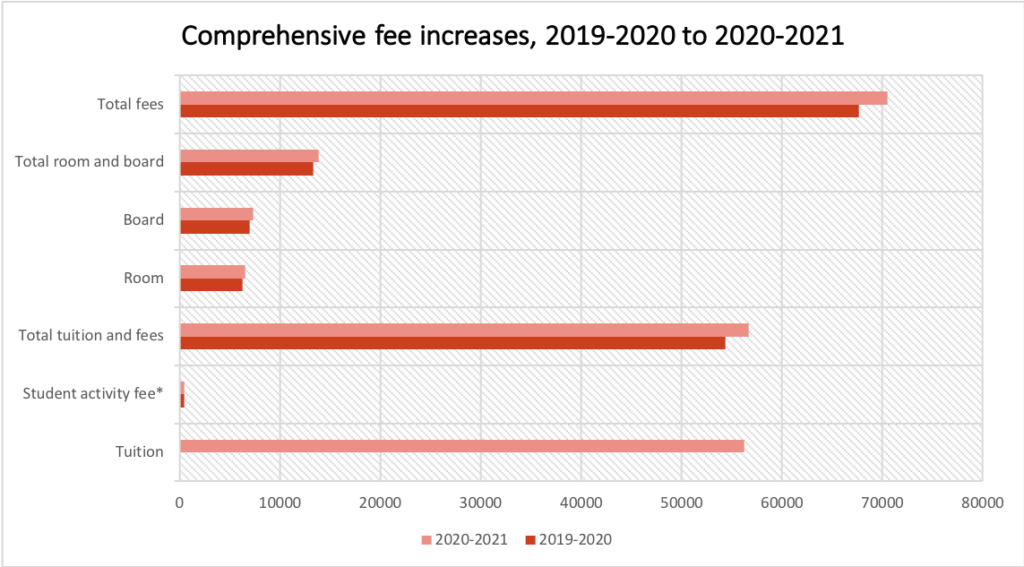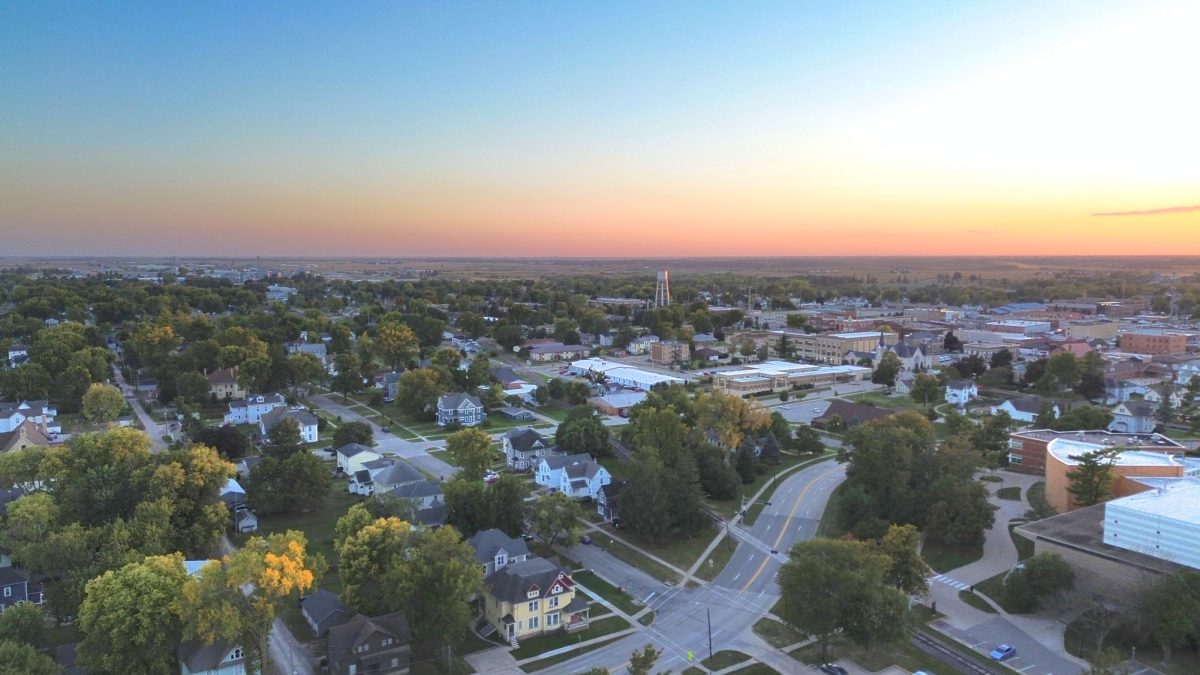
By MJ Old
oldmadel@grinnell.edu
Students attending Grinnell College in the 2020-2021 school year will have to pay a comprehensive fee of $70,544, up almost $3,000 from last year. At 4.3 percent, the increase is comparable to previous years, and the College remains committed to meeting 100 percent of demonstrated financial need.
David Maxwell, chair of the board of trustees, noted that the board’s top priority in spending is resources for financial aid, followed by faculty and staff salaries. “It’s also important to note that net revenue from tuition covers less than 50 percent of the cost of a student’s education at Grinnell,” Maxwell said. “The rest comes from endowment income and gifts to the annual fund.”
The student activity fee, which funds the Student Government Association (SGA), increased by only 2.1 percent, much less than the 4.3 percent increase for the other components of the comprehensive fee (tuition and room and board). SGA Treasurer Amanda Weber ’21 explained that while SGA does not have any control over the other components of the fee, the student activity fee is based on requests made by SGA and the Student Publications and Radio Committee.
“We sit down with the college treasurer, Keith Archer, and Keith gives us some potential numbers, usually in the range of three to four percent, and asks us what we think of the numbers he’s presenting,” Weber said. “This year we decided to go a lot lower than the numbers they had projected for us.”
The increase in SGA’s budget will serve as a buffer to deal with unforeseen expenses.
“The Division of Student Affairs has been pushing for something called a Programming Board, which would be a separate or connected group to SGA that would take over all the programming aspects of SGA and SGA would remain a governance body,” Weber said. The increased budget can also be used to pay the students who do work for SGA more fairly.
In deciding how much to charge students, the College considers the comprehensive fees of the “Peer 16,” other private, elite, liberal arts institutions in the country, including Smith College, in Massachusetts, and Oberlin College, in Ohio, of comparable size. Smith’s comprehensive fee for 2020-21 is $77,148.
In contrast to such private institutions, attending school for the 2020-21 at the University of Iowa will only cost $21,420 for Iowa residents.
“The cost differential between public and privates is very easy to explain,” said Maxwell. “An educational model that has experienced professors in the classroom with 18-20 students (like Grinnell) costs a lot more than one with hundreds of students in a lecture hall with a part-time adjunct faculty member or graduate teaching assistant. … That, sadly, is all too common in the public institutions.”
$70,000 is still a lot of money: one hundred iPhone 11s; an entire house in the town of Grinnell. In terms of current political events, attending Grinnell College will cost $70,000 more than the University of Iowa if Bernie Sanders gets elected president of the United States and implements his plan to make public college free.
Maxwell isn’t a fan of free college, favoring an expansion of Pell grants for low-income students. “If public education across the country were truly free, hundreds (if not more) of the small, less-than-elite private institutions would go out of business, putting tens of thousands of faculty and staff out of work, and tanking their community’s economy in the process,” Maxwell said. Not to mention that schools like Grinnell would have to lower their fees to attract students.
His own experience paying for college was far from the norm. “My father was a well-known jazz trumpet player, based in NYC, and my family could afford Grinnell’s tuition and fees — which, if my memory’s correct, totaled $2,500 my fourth year!”






















































